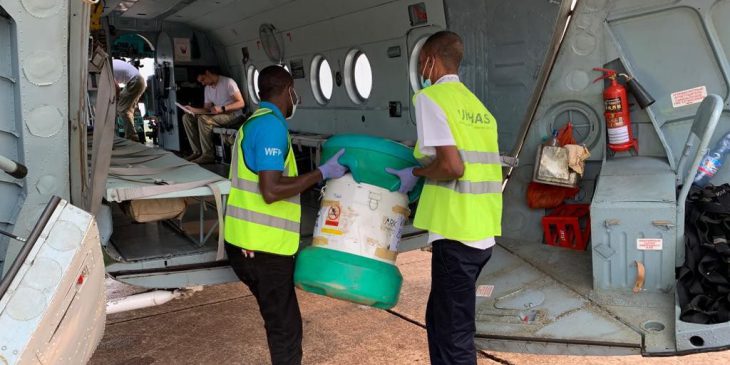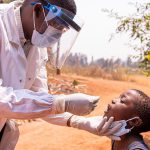Researchers at the University of Pittsburgh published a perspective in the New England Journal of Medicine drawing parallels between the HIV epidemic in Africa and the COVID-19 pandemic sweeping the globe. The researchers hope that lessons from the past will inform future scientific and governmental decisions.

Dr. Jean Nachega
Lead author Dr. Jean Nachega, associate professor of infectious diseases and microbiology and member of the Center for Global Health at Pitt’s Graduate School of Public Health, was born in Zaire, now the Democratic Republic of Congo.
“I witnessed first-hand the state of the HIV epidemic in Africa and its devastating effects on all aspects of human life,” Nachega said. “While writing this perspective, I was inspired by the early years of the HIV epidemic in Africa where access to treatment was challenging.”
The perspective also draws practical parallels between the COVID-19 pandemic and HIV, including innovative ways to ensure scale-up of a vaccine or treatment in Africa. Similar to other initiatives, such as the United Nations Global Fund against AIDS, Tuberculosis, and Malaria as well as the U.S. President’s Emergency Plan for AIDS Relief (PEPFAR) in the mid-1990s to scale-up HIV treatment, the World Health Organization-led COVAX consortium and its global partners are striving to secure 720 million doses of COVID-19 vaccines to achieve 60% coverage in Africa by June 2022.
Further, during the height of the HIV epidemic, stigma and misinformation stopped many people in Africa from seeking out therapies. A recent survey in the Democratic Republic of Congo shows that only 56% of adult participants would get the COVID-19 vaccine, and rates are even lower in health care settings.
“Like in the United States and Europe, disinformation from individuals and political or community leaders on social media is responsible for the high prevalence of vaccine hesitancy in Africa,” Nachega said. “There is a critical and urgent need to debunk disinformation.”
Nachega and his team also point out that, similar to the COVID-19 vaccine, antiviral medications for HIV were not initially studied in pregnant women and children. These demographics are key to getting any pandemic under control, yet the results of studies examining the effectiveness in COVID-19 vaccines in these populations aren’t expected until later this year.
The research team hopes these and other parallels between the two pandemics can help guide scientists and government officials as they educate the public about COVID-19 prevention methods and distribute vaccines in Africa.
“My dream was always that one day I would return to Africa and help improve the peoples’ well-being,” Nachega said. “I hope that we can learn from our past to help ensure a safer future for all.”








